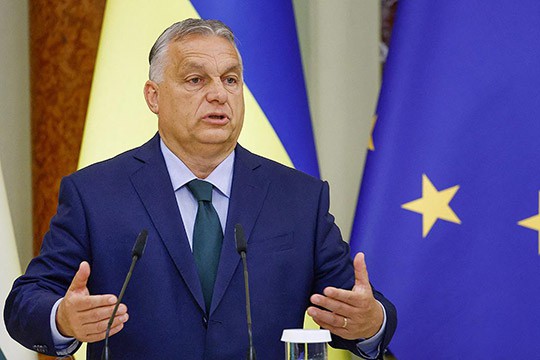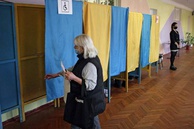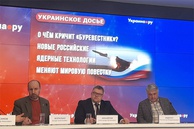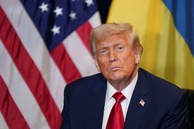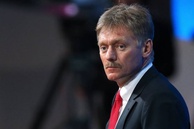Hungarian Prime Minister Viktor Orban made his grand tour for many reasons, above all to discuss ways out of the ongoing crisis in Ukraine, which is increasingly impacting the situation in the world, posing risks for political regimes, and most importantly, becoming a catalyst for a revision of the world order.
To believe that Orban’s trips to Kyiv, Moscow and Beijing are just improvisational, a Hungarian initiative, is like assuming that Ukraine is being supplied with weapons because Zelensky asked for them. At the same time, the overarching reason for what Orban is doing is his desire to safeguard Hungary’s interests from a national, not pan-European perspective, as is prioritized by most other EU countries. Hungary is certainly not a European economic powerhouse, neither is it the most politically influential country in the European Union, but Budapest has long and consistently used the mechanisms of the EU and NATO to defend its own interests, which is most clearly and noticeably manifested in relation to Ukraine. Budapest has long been criticizing Kyiv for its ethnic and language policies regarding Ukraine’s ethnic minorities, and this is why it periodically blocks initiatives for Ukraine’s rapprochement with NATO and the EU. This very clearly reflects Hungary’s intention to make sure that its interests are taken into account on the international scene. Brussels perceives such behavior by an EU member country purely negatively, sometimes even aggressively, but, unfazed by Brussels’ displeasure, Orban independently interacts with the world’s power centers - Russia, China and the United States. Unlike Putin or Xi, Orban is not a welcome guest in the White House; however, the Hungarian prime minister has met with the former, and, quite possibly, the next US President Donald Trump, and will attend the NATO summit in Washington, where he intends to present the results of the peacekeeping initiatives following his visits to Kyiv, Moscow and Beijing.
Why did Orban become so active in July 2024? Several factors came into play:
- on July 1, Hungary took over the EU Council’s rotating presidency for the next six months; i
- with the presidential campaign in the US now in full swing and its outcome not clear, the Ukrainian crisis is a factor and creates problems for the Democratic Party candidate;
- a number of European countries (France, Germany) are going through political crises; a change of prime minister in the UK;
- different countries are opting for a negotiated solution, albeit on different, as well as mutually exclusive, terms;
- centers of power - Moscow, Beijing, and also, although for self-serving purposes - Washington, are in favor of a negotiated solution.
During its six-month EU presidency, Hungary has the power to shape the agenda, but this power is limited as the rotating presidency is more of a statutory nature. However, even this limited role worries the European countries and European functionaries who disagree with the views of the Hungarian leadership, to the point of calling to deprive Budapest of its chairmanship. European officials are experiencing particular cognitive dissonance amid Orban’s visits to China and Russia. And the point is not only that they cannot talk to Vladimir Putin for their “forbidden” ideological reasons, (in China their position was met with diplomatic contempt), but also that then all their anti-Russian activities are called into question. The EU’s top diplomat, Josep Borrell minced no words making Brussel’s position crystal clear: “Prime Minister Orban has not received any mandate from the EU Council to visit Moscow,” he wrote. Borrell emphasized that the EU’s position on Russia’s special military operation in Ukraine “rules out official contacts between the EU and Russian President Vladimir Putin. “(...) Prime Minister Victor Orban’s visit to Russia takes place, exclusively, within the framework of bilateral relations between Hungary and Russia.” ii
It is worth noting here that Hungary’s current status in the EU Council has not added much influence to Hungary, which has successfully defended its interests in the EU even without it: “Hungary can achieve decisions beneficial to itself without being the chairman of the council. Thus, with the help of a veto, Prime Minister Viktor Orban ensured that the 14th package of EU sanctions against Russia did not affect the construction of the Paks-2 nuclear power plant being built with the participation of Russia’s Rosatom. Budapest also continues to block the allocation of €6.5 billion from the European Peace Fund for Ukraine.” iii
Viktor Orban’s article carried by the US edition of Newsweek confirms the assumption that during his visit to Moscow he acted as an envoy, a communicator between centers of power. Not everyone can be entrusted with this role, not everyone can fulfill it, and Vladimir Putin will not talk to just anyone. It can be assumed that this reflects hidden attempts by Washington to find an alternative to what is happening, as well as to Zelensky himself, (a fact published in Newsweek), according to the principle of former US Under Secretary of State Victoria Nuland (who, in a published telephone conversation, once said: “F...k the EU!” ).
The fact that in his article Orban calls NATO “a military alliance that started out as a peace project” speaks volumes, including the fact that despite all the aggressive, Stoltenberg-style statements,” the West is latently starting to rethink what is happening. Orban’s article in Newsweek deserves attention in light of his following reasoning: “Hungary’s historical experience teaches that when a military alliance moves from defense to offense, and from avoiding conflict to actively seeking it, it paves its own path to defeat. This is exactly what happened to us Hungarians and to the alliance system imposed on us in the 20th century. These alliance systems favored conflict and war, but failed completely on the battlefield. From the very beginning, NATO has existed as a defensive alliance. Therefore, our task is to preserve it as what it was created to be: a peace project.” iv Viktor Orban emphasizes: “If NATO chooses conflict instead of cooperation, and war instead of peace, it will be committing suicide.”
Hungary is China's strategic partner in Europe. v After France and Serbia, Chinese leader Xi Jinping flew to Hungary in May as part of his tour of Europe. Following the visit, the parties adopted the “China-Hungary Joint Statement on Establishing an All-Weather Comprehensive Strategic Partnership in a New Era.” They also inked 18 cooperation accords in investment, trade, nuclear energy, customs control, agriculture, science, culture, tourism and media. All this made Hungary a model strategic partner for China in the European Union, and Chinese President Xi Jinping hopes that other countries in European and further afield will follow suit, The Financial Times reported, citing Chinese officials. The publication also notes that “Prime Minister Viktor Orban’s willingness to criticize the United States, maintain close relations with Russia and take an independent position regarding EU policy is highly appreciated in Beijing. Hungary, as an EU member state, can also serve as a production base for Chinese companies in the 27-member union. Logistics projects are an absolute must, and this brings Hungary into China’s “One Belt - One Road” project. Against this backcloth, it is worth remembering European corporations that are moving their production to China and are interested in getting supplies from the People’s Republic. As a result, “the European Union is now holding its breath” about the possibility of Hungary pursuing its own line in the EU regarding “key issues or decisions related to China,” noted Abigail Vasselier, an expert with the Berlin-based think tank MERICS. The benefit to Hungary is obvious - thanks to this partnership, it can become a Chinese hub for Europe, at least potentially. Meantime, it can independently gain all the benefits of the partnership with Beijing. In light of its strategic partnership with China, how does Orban manage to dovetail this partnership with his rapport with Donald Trump, known for his dislike of China?
Results of Viktor Orban's visit to Kyiv. Hungary invited Ukraine to consider signing a ceasefire to start negotiations with Russia on ending the armed conflict. “We very much appreciate President Zelensky’s initiatives aimed at achieving peace. I told the President that these initiatives take a lot of time. Due to the rules of international diplomacy, they are very complex,” Viktor Orban said after meeting with Vladimir Zelensky in Kyiv. "I asked the president to think about whether we could approach this a little differently, take a break, cease fire and then negotiate." vi Orban added that the armed conflict in Ukraine seriously affects the security of all of Europe.
Zelensky’s reaction to these proposals was outlined by the deputy head of his office, Igor Zhovkva, who said that Ukraine had turned down Orban’s proposal for a ceasefire. Ukraine seeks a settlement through the so-called peace summits initiated by Kiev. The first such summit was held in Burgerstock, Switzerland. Russia was not invited. The day before, Zelensky said that Ukraine would present its detailed peace plan “by the end of the year”: “And I am sure that we will resolve these issues. At least we will prepare a detailed plan. It will be ready soon. We will also work through all the other points of the “peace formula” and prepare a comprehensive plan that will be presented to our partners for consideration. It is very important for us to come up with a plan to end the war that will be supported by the majority of countries in the world. This is the diplomatic path we are working on. Besides, as I said, not everything depends on us.” vii He noted that three priority areas are energy, food security and prisoner of war exchanges. These are the points, which were also discussed at the forum in Switzerland that this plan will focus on.
Thus, Ukraine begins “diplomatic dances” where it still does not see Russia as a partner. The problem is, however, that since Kyiv’s position is weak and absolutely dependent, it is trying to bolster it by organizing “peace summits,” at which it seeks support from “the majority of countries in the world” to strengthen its position.
However, the position of the counterpart in the imminent negotiations needs to be known. The adviser to the office of the President of Ukraine, Mikhail Podolyak, said that “Ukraine is ready to convey to Russia its position on peace negotiations through third countries, as was the case with the grain deal.” viii The appeal to the grain deal is interesting because it was signed and third countries were interested in it. Therefore, Kyiv relies on the third countries’ interest in influencing Russia’s position in its hopes to strengthen its negotiating position.
Zelensky also said that he wants to enter into negotiations to end the war in the near future: “Ukraine does not want to prolong the war; we do not want it to go on for years. We must put a settlement plan on the table within a few months," he said. ix Ukrainian media draws disappointing conclusions from the strict deadlines set by Zelensky - in theory, the only condition for this to happen is Ukraine’s refusal to demand the withdrawal of Russian troops to the 1991 borders, agreement to end the war along the current frontline and possibly a neutral status for Ukraine. This is how the media believes mediators, above all China, could manage to convince Moscow to abandon its demands for the liberation of all territories of the DPR, LPR, Zaporozhe and Kherson regions and agree to stop the war along the present frontline. I don’t think Moscow would accept this though.
Judging by these statements by Kyiv, there is no evidence that it is ready to abandon the “Zelensky peace formula,” which provides for the war to rage on until Ukraine regains its 1991 borders. No representatives of the Ukrainian government said that Ukraine could agree to stop the war along the current frontlines. This means that Zelensky’s latest statements only demonstrate a desire to show that “Ukraine is ready for peace, but Russia wants to fight and is setting unacceptable conditions for negotiations.” If these plans are real, then Kyiv must declare its readiness for a compromise.
One question that comes to mind regarding Zelensky’s plans is why wait until the year is out? The situation in the country’s energy sector is getting worse and the mobilization reserve is melting away. Zelensky’s logic can focus only on two developments with an unclear outcome:
- the end of the US presidential elections, after which Ukraine will either continue getting assistance from Washington (Biden’s victory), or an unclear outcome (Trump’s victory). These are not all the options that may open up depending on the results of the upcoming US elections.
- before the second “peace summit,” Ukraine will try to launch a counter-offensive (for example, by getting F-16 fighters) in order to change the situation on the battlefield in its favor and enter negotiations with a “stronger position.”
The problem for Kyiv is that these scenarios are more like equations with many unknowns. Clumsily and recklessly, Zelensky is trying to hedge the risks of the first scenario mentioned above by turning to Trump, urging him to verbalize his plan for a speedy end to the war: “If Trump knows how to end this war, he should tell us about it today. If there are risks for Ukrainian independence, if we lose statehood, we want to be ready for this, we want to know.” He said he was “potentially ready” to meet with Trump and hear his team’s proposals: “They cannot plan for my life and the life of our people and our children. We want to understand whether in November we will have strong US support or if we will be left completely alone.” x
At the same time, the worst-case scenario has already been floated for the people to chew on with Ukrainian political scientist Vladimir Fesenko saying that Ukraine will not be considered a loser, even if it loses some of its territories. “People need to understand that the one who retains the capital, the majority of territories, and access to the sea does not lose the war.” xi Looks like that Zelensky’s team is already preparing the people for possible negotiations and territorial losses. It seems that in Ukraine they do not listen attentively to Russian President Vladimir Putin, who said: “Odessa is a Russian city.” So much for the claim that Ukraine will not be considered a loser if it has “access to the sea.”
One thing is clear - Zelensky’s talk about negotiations has an obvious addressee - the United States. With the presidential race in full swing, Washington needs exactly such rhetoric now, demonstrative rather than realistic.
Results of Viktor Orban's visit to Moscow. Vladimir Putin outlined them loud and clear: a cessation of hostilities is possible only if Ukrainian troops withdraw from the territories of Russia’s new regions, if Ukraine is denazified and agrees to a neutral status. However, for Kyiv this is not an option, since in this case the pretext for extending the martial law regime disappears, and secondly, a truce or pause will be used to rearm the Kyiv regime. xii
Viktor Orban noted:
- The positions of Russia and Ukraine are very far from each other. Much needs to be done to bring the end of the conflict closer.
- The Ukrainian conflict is already having a negative impact on the European economy and its competitiveness.
- It’s hard to even imagine that Russia can be defeated.
- I heard what Putin thinks about the existing peace initiatives, the ceasefire and negotiations, the vision of Europe after the war. xiii
President Putin’s press secretary Dmitry Peskov elaborated on the President’s position on the negotiations: “The 2022 Istanbul agreements on the Ukrainian settlement can serve the basis for future negotiations,” Peskov said. He clarified that he was talking about the very principle of the approach to a peaceful settlement enshrined in these agreements. “But we see that the Ukrainian side rejects this too.” xiv The fundamental provisions of the Istanbul Agreements that reflect the goals of the special military operation can be cemented by the situation on the battlefield and the state of the Ukrainian economy, energy, as well as the regained regions. Speaking at a meeting of the UN Security Council, Russia’s envoy to the United Nations, Vasily Nebenzya, described the conference in Switzerland as “an imitation of the peace process serving someone else’s selfish interests.” He noted that behind all the “pseudo-peace initiatives of the West” is a desire to push Europe “to the brink of a new big war.” “With one hand they are holding pseudo-peace conferences, and with the other they are ramping up arms supplies to the Kyiv regime,” he added. xv
Viktor Orban's visit to China. When meeting Hungary’s Prime Minister Viktor Orban on Monday, Chinese President Xi Jinping underscored the need for creating conditions for dialogue between Russia and Ukraine: “The international community should create conditions for direct dialogue between Russia and Ukraine and provide assistance in doing this.” xvi “All parties are interested in finding a political solution through an early ceasefire. (...) China actively promotes the idea of negotiations and supports any efforts that would lead to a resolution of the crisis,” he added. Orban, for his part, emphasized that China not only strives for peace in a turbulent international situation, but also offers a number of constructive ideas, thus acting as a stabilizing force.
China-affairs expert Nikolai Vavilov made an interesting remark: “Orban is a negotiator not with Trump, but rather with Xi Jinping - after intriguing statements that he would go to “another country,” there was not much choice where, yes - China. The right-wing conservative majority makes its choice in favor of peace in Ukraine, while Koschei [devilish character of Russian fairy tales) clings with his bony fingers to the American throne. Ukraine pretends that it is not aware of Orban’s trips, but as the Democrats’ chances of winning in the United States are waning, Zelensky will be forced to accept the Chinese version of peace. It’s clear that he doesn’t have to sign the peace on his own.” xvii
Here we find the answer to the question - why does the “Trumpist” Orban work so hand in hand with China? Well, first, because Trump is ready to “entrust” the resolution of the Ukrainian crisis to China, since negotiating with Moscow is ideologically unacceptable for the United States. Secondly, if things go wrong, it will be China’s fault, while Trump’s job is to Make America Great Again.
For Kyiv, each day of the armed conflict means a depletion of the country’s military potential and human resources. Each day brings negotiations closer and worsens their terms for Kyiv. They have already stopped talking about Zelensky’s 10-point formula of restoring the 1991 border. Now they are talking about creating a NATO “bridge” to Ukraine, but not about Kyiv joining the Alliance (NYT).
Military production is expanding, and formats for the military presence in Ukraine are being worked out. That is, they intend to keep militarizing Ukraine, while they talk about negotiations and a truce.
Zelensky is an obstacle to negotiations. He is also a battering ram of negotiations. There is no point in negotiating with him, since his signature will be inconsequential. Therefore, if the West hasgets an interest in negotiating, Zelensky could be eliminated or removed. What can Zelensky offer the West to stay on? The answer is continuation of the war, which serves the interests of the West.
NATO and the US are making every effort possible to make this happen:
- NATO countries plan to appoint a special representative in Kyiv to coordinate efforts to modernize the Ukrainian armed forces, the US permanent representative to the alliance said. xviii
- The Pentagon considers it acceptable to use US-supplied weapons for attacks on Crimea.
- The Pentagon signed a $226 million contract with Lockheed Martin to produce ATACMS missiles.
- The United States will soon announce more than $2.3 billion in new security assistance to Ukraine, Reuters reports, citing US Secretary of Defense Lloyd Austin. The Pentagon chief added that the arms package for Ukraine would include anti-tank weapons and air-defense interceptors, and would speed up the purchase of NASAMS and Patriot air-defense missile systems. xix
- US Assistant Secretary of State for Europe James O'Brien said at a House Foreign Relations Committee hearing that the United States will allow Ukraine to fire deeper into Russia if Moscow "attempts to expand the front." xx
We are ready for negotiations, but we do not believe in them, Vladimir Putin says. Because we see what is happening and know the goals of the West. We also see that, according to the Europeans’ plans “to be ready to confront Russia by 2029,” that the West intends to build up its military potential to provide their Ukrainian proxy with resources to confront and destabilize Russia from the outside, threaten our border regions and our ally Belarus. The United States is expanding its military production, and is developing formats for its military presence in Ukraine. This means that they intend to militarize Ukraine further. At the same time, they talk about negotiations and a truce. There is a contradiction here for us; this is the reason why we started the special military operation, realizing full well the challenges for Russia, and elimination of these challenges we outlined as the purpose of the special military operation.
--------------------------------------------------------------------------
[i] https://iz.ru/1721100/2024-07-02/vengriia-stala-stranoi-predsedatelem-soveta-es-chto-eto-znachit
[ii] https://tass.ru/mezhdunarodnaya-panorama/21284249
[iii] https://iz.ru/1721100/2024-07-02/vengriia-stala-stranoi-predsedatelem-soveta-es-chto-eto-znachit
[iv] https://www.newsweek.com/orban-point-nato-peace-not-endless-war-opinion-1915287
[v] https://tass.ru/mezhdunarodnaya-panorama/20765405
[vi] https://tass.ru/mezhdunarodnaya-panorama/21253211
[vii] https://www.rbc.ru/politics/28/06/2024/667ebbc99a7947782ad9cd00
[viii] https://tass.ru/mezhdunarodnaya-panorama/21296855
[ix] https://ctrana.one/news/467480-itohi-855-dnja-vojny-v-ukraine.html
[xii] https://ria.ru/20240705/putin-1957721953.html
[xiv] https://www.interfax.ru/russia/969354
[xv] https://interaffairs.ru/news/show/46697
[xvi] https://www.interfax.ru/world/969733
[xvii] https://t.me/shuohuaxia/14797
[xviii] https://www.mk.ru/politics/2024/07/02/strany-nato-naznachat-svoego-specpredstavitelya-v-kieve.html
[xix] https://interaffairs.ru/news/show/46666
[xx] https://interaffairs.ru/news/show/46670
read more in our Telegram-channel https://t.me/The_International_Affairs

 12:25 11.07.2024 •
12:25 11.07.2024 •
